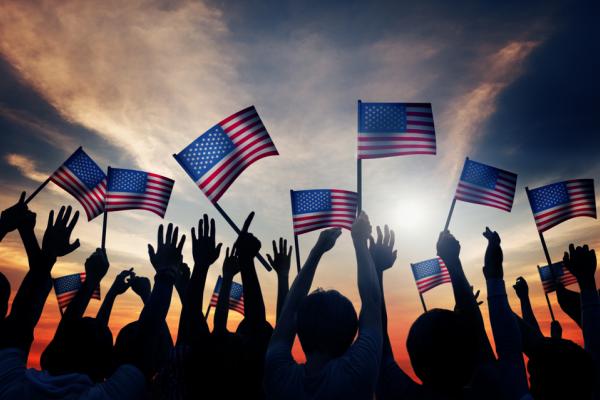Before we pack up the red, white, and blue bunting for another year, let’s take a few moments to think about the word that was at the heart of the 4th of July weekend.
No, not patriotism. Or independence. Or liberty. Or even freedom. Let’s talk about "we."
You know: The first word in the constitution. The one that puts everything that follows it inside a framework of a collective effort and combined responsibility. "We the people." All of us. Together. Part of something bigger than any one of us individually. Yeah, that word.
Have you noticed that we don’t discuss that idea very much? I wonder why. A lot of Fourth of July posts this year went on lavishly about individual rights and personal freedom. And yes, those are important. But they’re only part of the equation, and they’re not even the starting point. It starts not with me, but with we — a pronoun that is radical and revolutionary.
Actually, the whole first sentence — known as the preamble — makes no mention of anything individual. It references union, common defense, general welfare. It recognizes that we’re not only independent, but interdependent as well. Singular, and plural, too.
And it’s not an original concept. Even though the constitution makes no mention of God — the founders did that on purpose — the opening word goes to the heart of actual religion. It’s about seeing ourselves as part of something bigger than ourselves. About our commitment to be part of the whole. The creation stories locate us within a diverse web of life. They put us in relationship with each other and with everything that’s in the world — it’s never good to think of ourselves as being alone.
One touchstone prayer refers to God as our parent, not just my parent. And it asks our creator to give us our daily bread. To forgive us. Lead us. Deliver us. There’s not a single mention of “me” or “my” or “I” in the prayer. And it concludes with a collective amen, an affirmation that we’re all in this together. It can’t be any other way.
Actual religion has love at its heart, and love by definition always involves relationship. It’s lived and expressed within the context of a commitment to someone and something other than ourselves. It’s always plural. It recognizes that others’ needs are just as important as mine, and I need to try to help them meet them. It sees everyone else as equally important. It challenges us to replace self-centeredness with love, compassion, healing, and forgiveness.
It’s not easy, of course. And right now, it’s not popular. I’m guessing it never has been. If you spend even a little time with cable TV or social media, you’ll hear lots of emphatic talk about “I” and “my” and “me” and "mine" — my rights. My freedom. My guns. My religion. Stand my ground. Don’t tread on me. Don’t tax me. Don’t require anything of me. Leave me alone. Leave me out of it. You? You’re on your own, too. Unless you do something that’s different from how I prefer to do it. Then I’ll insist that you have to do it my way. And if you don’t, it’s a violation of my rights.
Don’t we hear that a lot lately in our society? Haven't we lost our sense of kinship to the world, our connection with one another?
Finding a healthy balance between our independence and interdependence — the “me” and the “we” — is one of our greatest and most important challenges as humans. We have to keep the two in a healthy, creative tension. And it’s not easy. It involves respectful and open-minded discussion. It requires sacrifice, compromise, accommodation and compassion. It requires commitment to making it work.
And yes, it means respecting and safeguarding our independence as people. A healthy relationship involves independent people freely choosing to love each other and to sacrifice for each other. Helping the other grow into the best version of themselves as we do the same.
When one person in a relationship ignores the other’s needs or insists on getting things their way, the relationship crumbles. Each person must be respected for who they are. It takes a lot of effort, this being singular and plural at the same time. But it’s our calling to struggle with it and to work at it daily.
A revolutionary idea for all of us.
Got something to say about what you're reading? We value your feedback!

